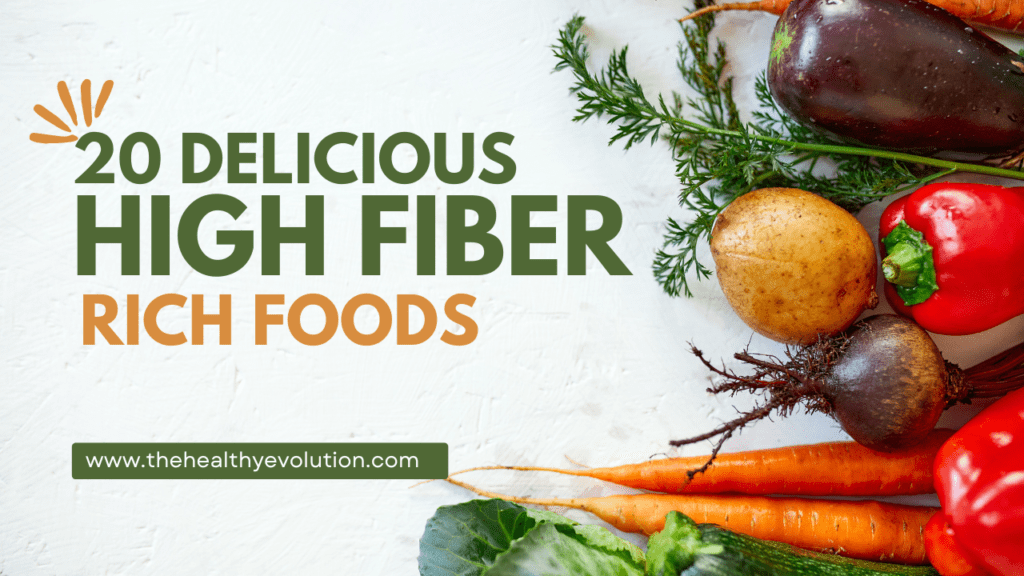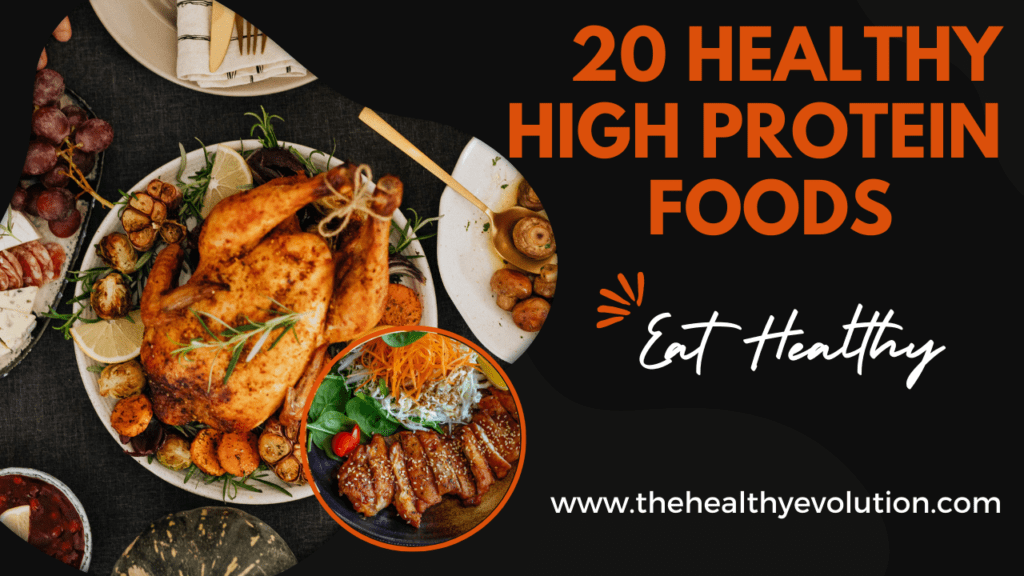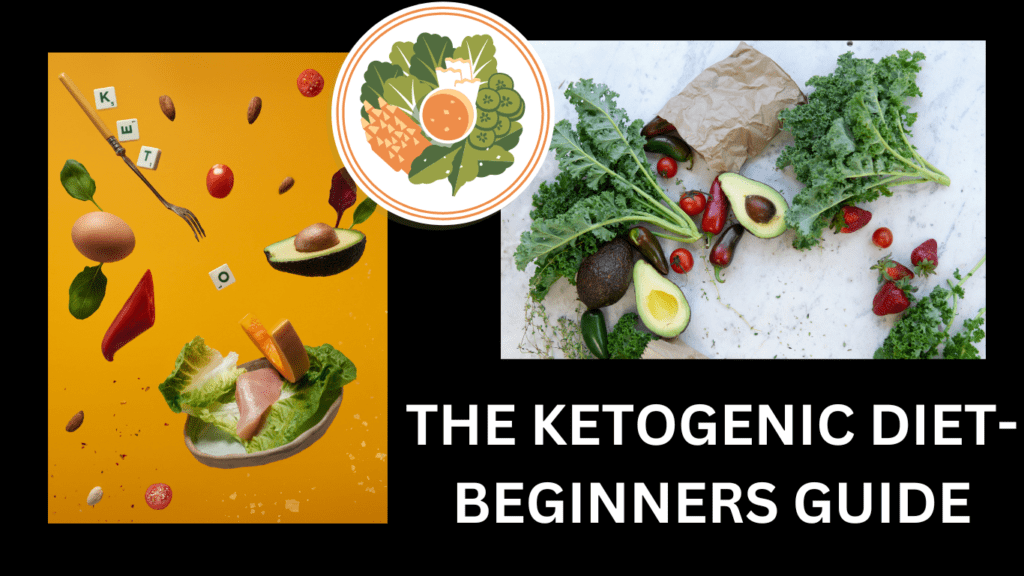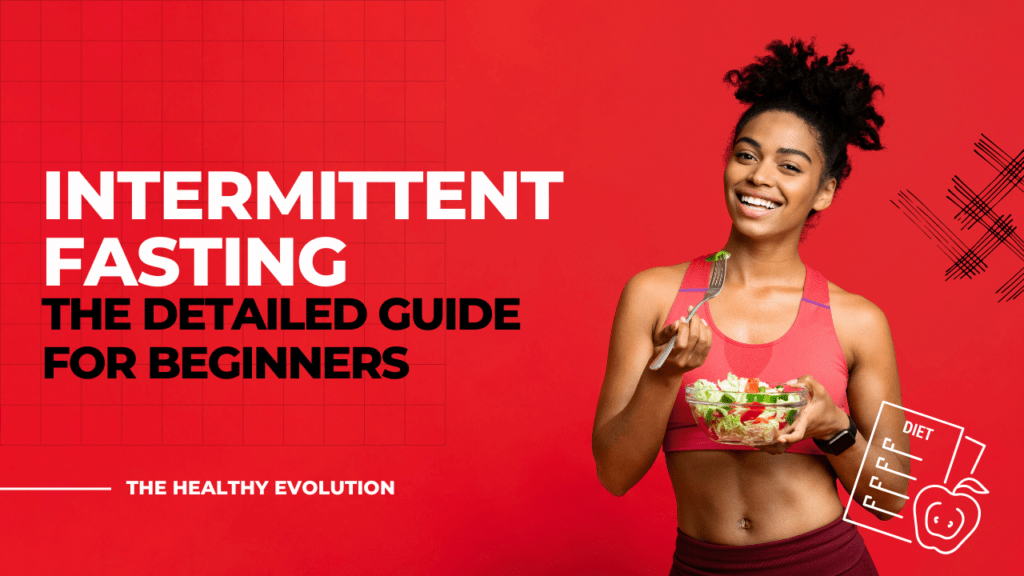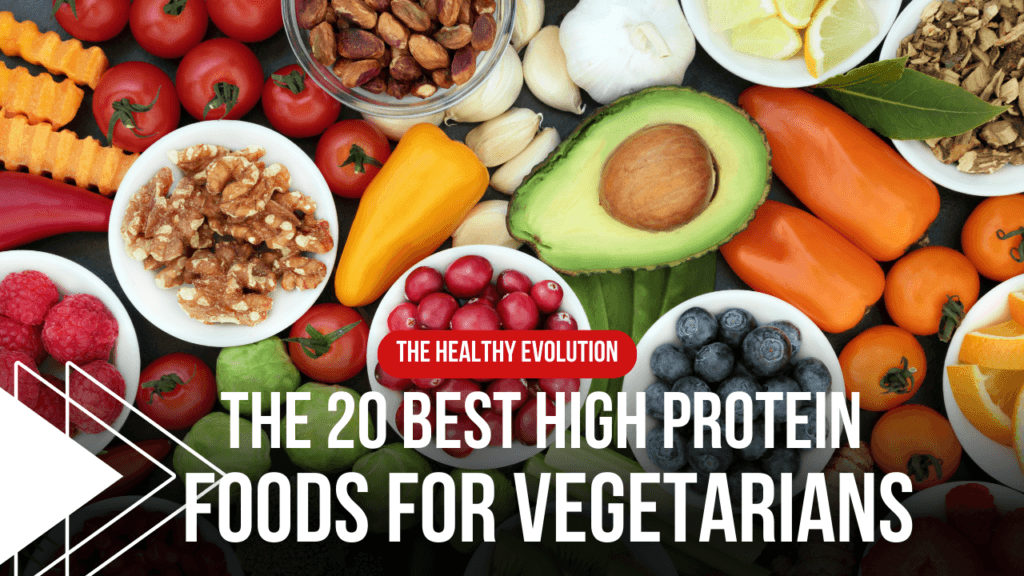Fiber-rich foods are very healthy and many foods have a good amount of fiber so adding fiber foods to your diet will be very healthy for your body. Fiber foods have many health benefits
1. Good for digestion
2. Reduce the risk of cancer
3. Lowering blood sugar
4. Boosting heart health
What is Fiber and their Types?
Fiber is also known as dietary fiber which is a type of carbohydrate and mainly found in plant based foods that cannot fully digest. Here are the types of fiber,
1. Soluble Fiber
Soluble fiber attracts water and forms a gel-like substance which are digestive. It has many health benefits like regulating blood sugar levels and lower cholesterol.
2. Insoluble Fiber
This kind of fiber encourages regular bowel motions by giving the stool more volume. By accelerating the passage of food through the digestive tract, it aids in the prevention of constipation and upholds proper digestive function.
25 Healthy High Fiber Foods
Here are 25 healthy high fiber foods
1. Oats

Oats are a good source of fiber foods. It is rich in nutrients and provide a number of health advantages. Oats contain both soluble and insoluble fiber which helps to promote blood cells. They are a good source of dietary fiber, particularly beta-glucan, a soluble fiber with cholesterol-lowering properties. Manganese, phosphorus, magnesium, thiamine (vitamin B1), and vitamin E are just a few of the vitamins, minerals, and antioxidants that can be found in oats.
Fiber Fibers Content
(100g) of Oats gives you 10.2g of fiber
The Healthy Evolution
2. Banana
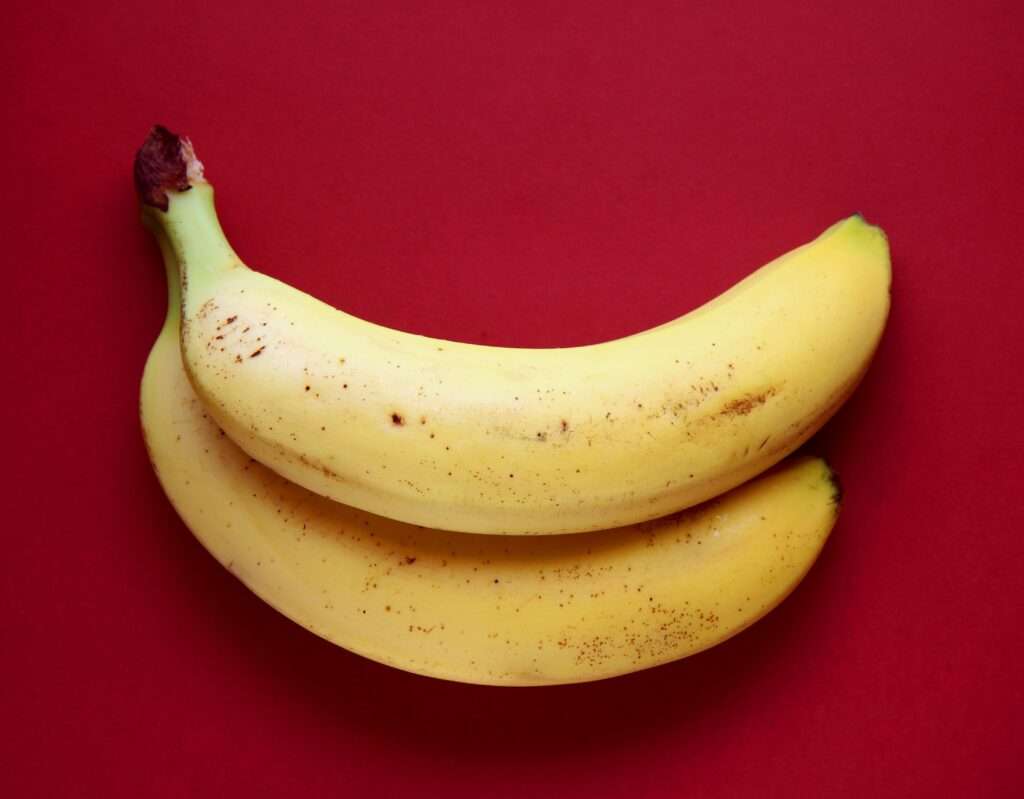
Banana is a best source of fiber and rich in nutrients like Vitamin C, Vitamin B6 and potassium. The fiber content in bananas helps in digestion and which can help from constipation. You can add banana as a snack to your diet because it is easy to eat and save you more time. Always remember to eat bananas when they are ripe for the best flavour and nutritional value. The inclusion of fiber-rich bananas in your diet can improve general health and maintain a healthy digestive tract.
Fiber Foods Content
(100g) of banana gives you 2.6g of fiber
The Healthy Evolution
3. Pears

Pears is a fruit that provides delicious flavour and a significant amount of fiber. It is favorite among fruit enthusiasts because of their distinctive texture and luscious sweetness. Having both soluble and insoluble fiber, pears are regarded as fruit with significant levels of fiber. Depending on the size and variety, pears’ precise fiber content can change, although a medium-sized pear normally has 6 grams of dietary fiber. Pears are thus a fantastic supplement to a diet high in fiber.
Fiber Foods Content
(100g) of pears gives you 3.1g of fiber
The Healthy Evolution
4. Lentils
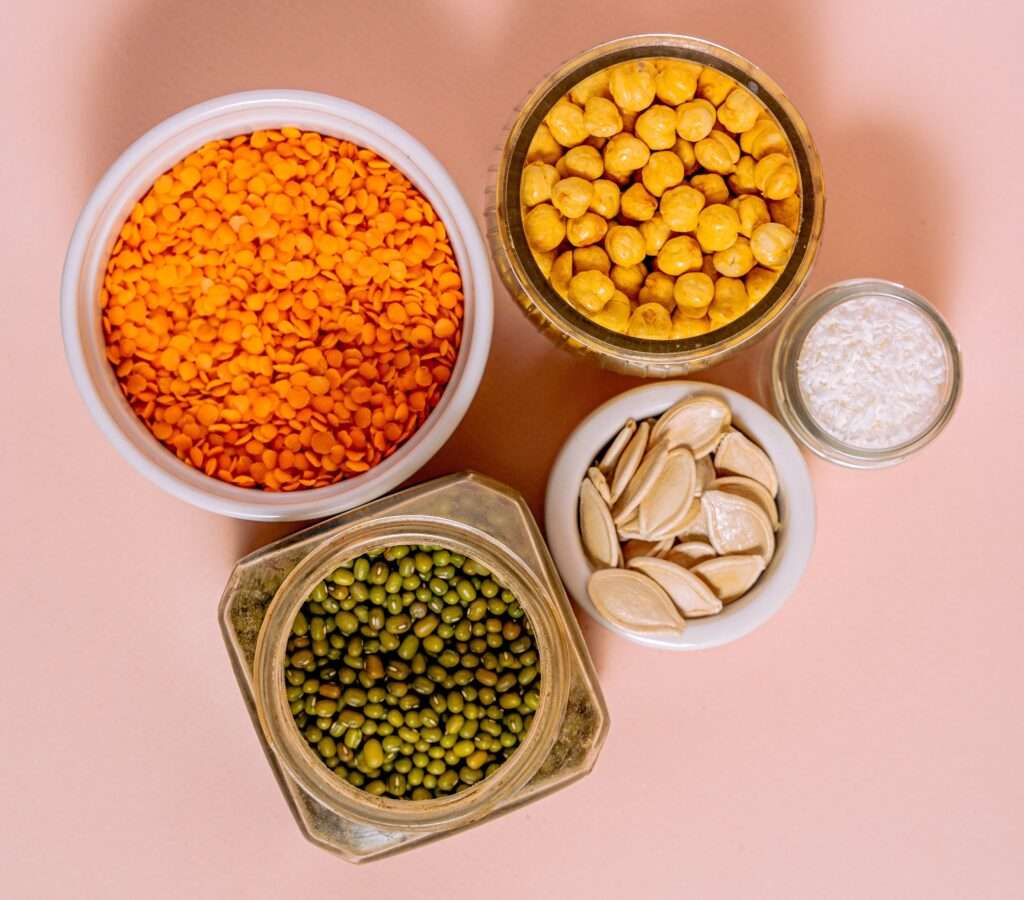
Lentils are an excellent source of plant-based protein and are very nutrient-dense. They are abundant in dietary fiber, folate (vitamin B9), iron, potassium, manganese, and complex carbohydrates. Smaller levels of other necessary elements like zinc, magnesium, and vitamin B6 are also present in lentils. Dietary fiber, which offers several health advantages, is abundant in lentils. Fibre promotes regular bowel movements, aids in digestion, and helps keep blood sugar levels steady. Lentils are a fulfilling dietary option because it also increases satiety. Because they are naturally low in fat, lentils also have very little saturated fat.
Fiber Food Content
(100g) of boiled lentils gives you 8.3 of fiber.
The Healthy Evolution
5. Avocado
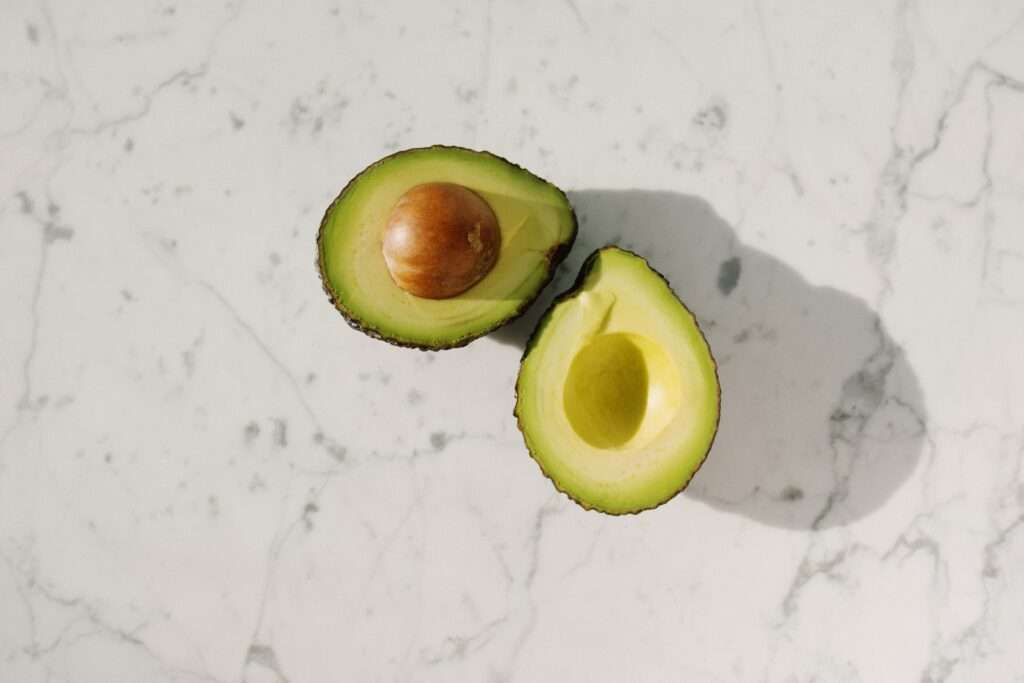
Avocado is a good source of fiber which contains nutrients like Vitamin K, vitamin D, Vitamin K and folate. It is a great source of monosaturated fats which helps to improve cholesterol levels. Avocado is a combination of both soluble and insoluble fiber. There are numerous health advantages to including foods high in fiber in your diet, such as avocados. A high-fiber diet has been linked to a lower risk of heart disease, type 2 diabetes, and several cancers, including colorectal cancer. By encouraging feelings of fullness and aiding regular digestion, fiber also helps with weight management.
Fiber Food Content
(100g) of avocado gives 6.7g of fiber
The Healthy Evolution
6. Broccoli
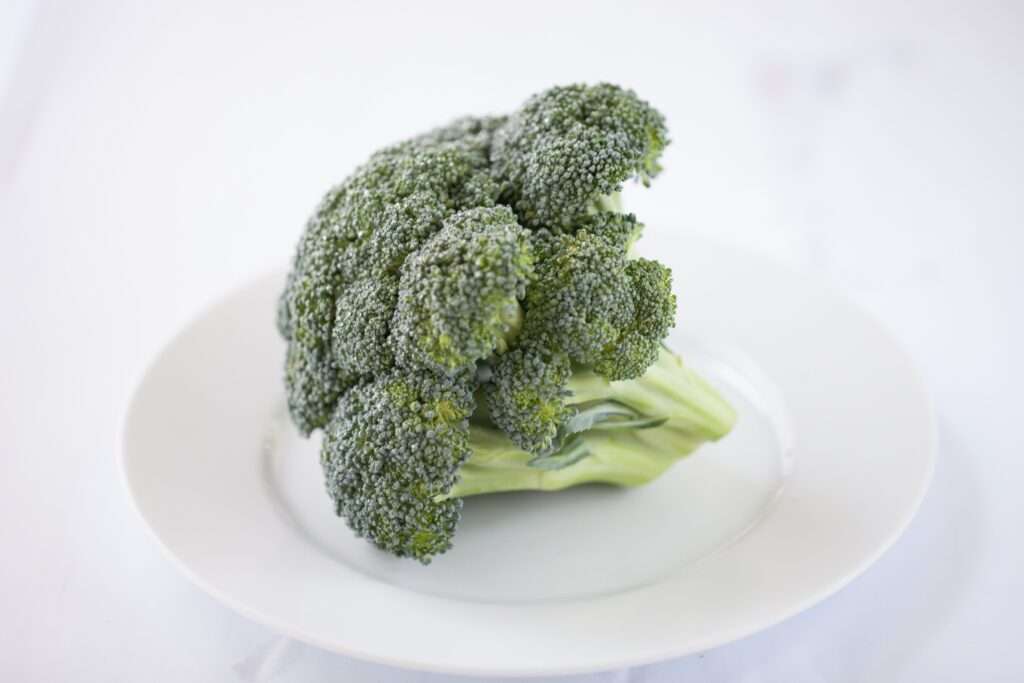
Broccoli is a good source of fiber which contains many nutrients like Vitamin C, folate and Vitamin K. Its fiber-rich content is good for digestion and overall health benefits. The fiber is a combination of soluble and insoluble fiber. Broccoli is a fantastic support to a balanced diet because it is low in calories and carbs. It is a filling and fulfilling dietary option due to its high fiber and nutritional content. Broccoli can be eaten in a variety of ways to help your health. It can be roasted, sautéed, steamed, or used for pasta recipes, soups, stir-fries, and salads. The absorption of broccoli’s fat-soluble vitamins might be improved by consuming it along with a source of healthy fats, like nuts or olive oil. It has good amount of protein too.
Fiber Food Content
(100g) of broccoli gives you 2.6g of fiber
The Healthy Evolution
7. Chia Seeds

Chia seeds contain a wealth of vital nutrients. They are a great source of protein, several vitamins and minerals, healthy fats (especially omega-3 fatty acids), and dietary fiber. Chia seeds have a low glycemic index and include antioxidants. Both soluble and insoluble fiber are rich in chia seeds. When soaked, they absorb fluids and take on a gel-like consistency that helps enhance bowel regularity, digestion, and the feeling of fullness.
Fiber Food Content
(28g) of chia seeds gives you 10g of fiber.
The Healthy Evolution
8. Sweet Potatoes
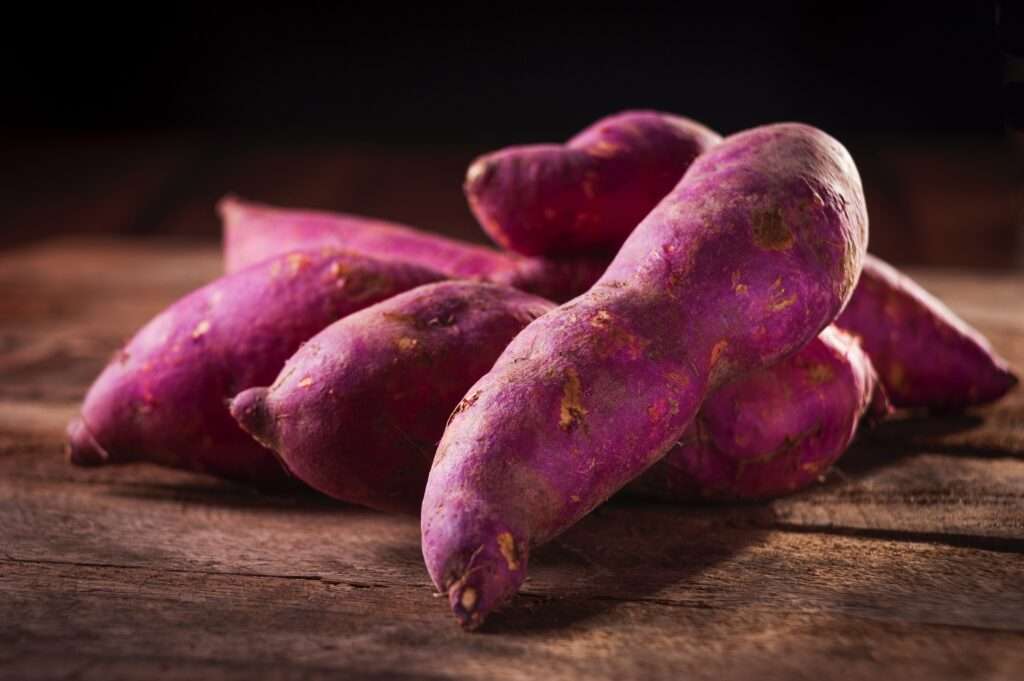
Sweet potatoes are delicious fiber-rich food and it is the best source of dietary fiber. It contain both soluble and insoluble fiber and it contains many nutrients like vitamin A, Vitamin C, vitamin E and Potassium. Sweet potatoes are having many health benefits like reduced risk of heart disease, stroke and cancer. Add sweet potatoes to your diet because they have a good amount of fiber and healthy fats.
Fiber Food Content
(100g) of sweet potatoes contains 3g of fiber
The Healthy Evolution
9. Chickpeas

Chickpeas are very nutrient-dense and provide a variety of crucial elements. They are a great source of complex carbohydrates, dietary fiber, plant-based protein, and a range of vitamins and minerals. In addition, chickpeas include folate, magnesium, phosphorus, and iron. Dietary fiber has several health advantages, and chickpeas are a great source of it. Fiber stimulates satiety and aids in blood sugar control, both of which help with weight management.
Fiber Food Content
(100g) of chickpeas gives you 17g of fiber
The Healthy Evolution
10. Black Beans
Black beans are highly nutritious fiber-rich food and it is the best source of plant-based protein and makes a good choice for vegetarian people. It contain both soluble and insoluble fiber and it contains many nutrients like folate, magnesium and iron. Black beans are having many health benefits like reduced risk of heart disease, stroke and cancer. Add Black beans to your diet because they have a good amount of fiber and protein.
Fiber Food Content
(100g) of black beans gives you 8.7g of fiber
The Healthy Evolution
11. Flax Seeds

Flax seeds are highly nutritional fiber-rich food and it is the richest source of plant-based protein and makes a good choice for vegetarian people. It contain both soluble and insoluble fiber and it contains many nutrients like folate, magnesium and iron. Flax seeds are having many health benefits like reduced risk of heart disease, stroke and cancer. Add Flax seeds to your diet because they have a good amount of fiber which makes your body very healthy. Flax seeds are very good for digestion and regulate blood sugar levels
Fiber Food Content
(100g) of Flax seeds gives you 27g of fiber
The Healthy Evolution
12. Quinoa

The powerhouse of nutrition is quinoa. Given that it contains all nine of the required amino acids, it is a complete protein. Additionally, it contains a lot of dietary fiber, antioxidants, minerals like magnesium and phosphorus, and vitamins like vitamin B, E, and folate. This makes it a good choice for vegans, vegetarians, and people who want to eat more protein. Dietary fiber, which offers numerous health advantages, is abundant in quinoa. In addition to promoting satiety and helping to control blood sugar levels, fiber aids digestive health.
Fiber Foods Content
(100g) of Quinoa gives you 3.5g of fiber
The Healthy Evolution
13. Strawberries

Strawberries are delicious high-fiber-rich food and have very low calories. It contain both soluble and insoluble fiber and it contains many nutrients like folate, magnesium and vitamin C. Strawberries are having many health benefits like reducing inflammation and supporting the overall immune system. Add Strawberries to your diet because they have a good amount of fiber and fewer calories which makes your body very healthy and makes your diet very easy. Strawberries are very good for digestion and regulate blood sugar levels
Fiber Foods Content
(100g) of Strawberries gives you 3g of fiber
The Healthy Evolution
14. Carrot
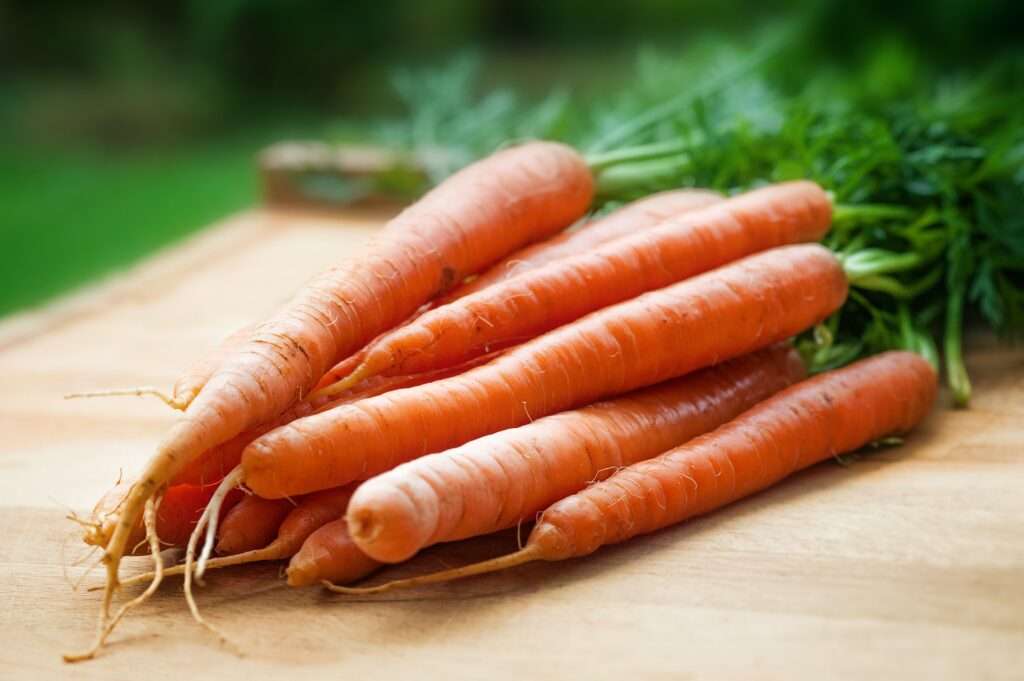
Carrots are highly delicious fiber food that contains both soluble and insoluble fiber. Adding carrots to your diet can have a number of positive health effects. By encouraging fullness and aiding proper digestion, the fiber in carrots helps with weight management. For people limiting their calorie consumption, carrots make a perfect snack or supplement to meals because they are low-calorie vegetables.
There are several health benefits of carrots like it support digestion and regulate blood sugar levels. The significant amount of beta-carotene, a precursor to vitamin A, found in carrots is widely recognized. The immune system, the skin, and good vision all depend on vitamin A for proper operation. Another antioxidant found in carrots is vitamin C, which helps the body fend off oxidative stress and lowers the risk of developing chronic illnesses.
Fiber Foods Content
(100g) of Carrot gives you 2.8g of fiber
The Healthy Evolution
15. Almonds

Almonds are very tasty fiber-rich food that contains both soluble and insoluble fiber. It has several health benefits like good for digestion and supporting weight management. Add almonds to your diet because they have healthy protein, fats and fiber in it. It Contains many healthy nutrients like vitamin E, potassium, iron and calcium. Eating boiled almonds is very healthy and very delicious.
Fiber Foods Content
(100g) of almonds gives you 12g of fiber
The Healthy Evolution
16. Artichokes

Artichokes are delicious vegetable and have a good amount of fiber. The fiber in artichokes has a number of health advantages. It supports a healthy stomach and prevents constipation, which helps with digestion. Additionally, the high fiber level encourages feelings of fullness, which can aid in weight management and limit overeating.
Artichokes are loaded with healthy elements in addition to fiber. They provide the body with quercetin and rutin, two antioxidants that help prevent inflammation and oxidative stress. Additionally, artichokes are high in potassium, magnesium, folic acid, vitamin C, and vitamin K.
Fiber Foods Content
(100g) of artichokes gives you 5g of fiber
The Healthy Evolution
17. Popcorn
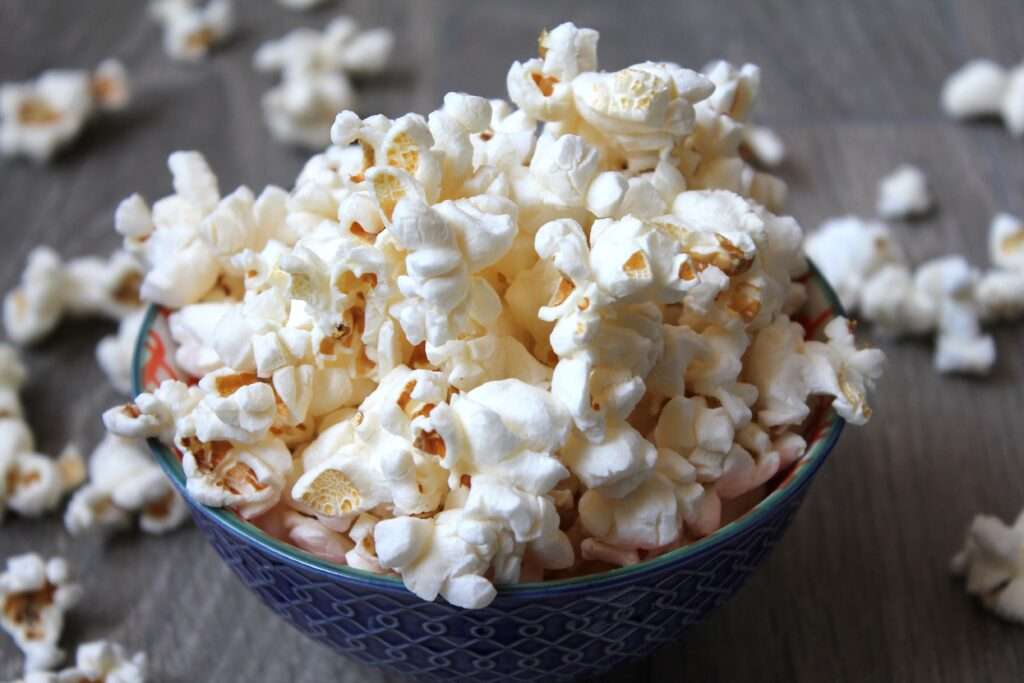
Popcorn is an easy snack to prepare and it has a high amount of fiber in it. It is a whole grain snack while whole grain snacks have high fiber content. Popcorn contains both soluble and insoluble fiber in it and it has several health benefits like reducing the risk of heart disease, stroke and cancer. Popcorn can be added to your diet because it has a good amount of fiber and it has very low calories.
Fiber Foods Content
(100g) of popcorn gives you 13g of fiber.
The Healthy Evolution
18. Apple

Apple is a popular fruit and has a good amount of fiber in it. Apples contain both soluble and insoluble fiber and contain a good amount of minerals and vitamins like vitamin C, Potassium and Vitamin A. It has several health benefits like regulating blood sugar and good for digestion.
Fiber Foods Content
(100g) of apple gives you 2.4g of fiber
The Healthy Evolution
19. Orange

Orange is a popular fruit and has a good amount of fiber in it. It is a good source of dietary fiber. Orange contains both soluble and insoluble fiber and contains a good amount of minerals and vitamins like vitamin C, Potassium and Vitamin A. It has several health benefits like regulating blood sugar and good for digestion. Adding oranges to your diet has many good benefits. The fiber content in oranges, along with their water content is good for hydration and satisfying snack.
Fiber Foods Content
(100g) of oranges gives you 2.4g of fiber
The Healthy Evolution
20. Raspberries
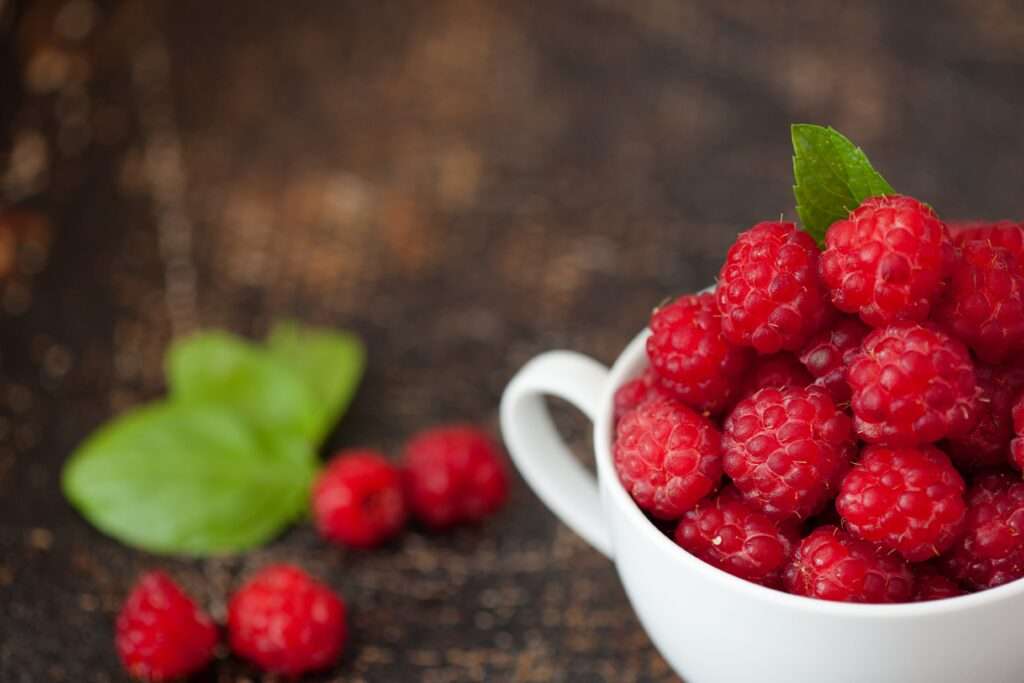
Raspberries are a good source of dietary fiber and it contains both soluble and insoluble fiber. Many health advantages can be gained by eating raspberries. Because raspberries are high in fiber, they help with healthy digestion and weight management by boosting satiety. The antioxidants found in raspberries, such as vitamin C, vitamin E, and other phytonutrients, assist the body to fend off oxidative stress and lower the risk of developing chronic illnesses like heart disease and some forms of cancer.
Minerals and vitamins are abundant in raspberries. Their high vitamin C content is particularly well-known for promoting iron absorption, collagen formation, and immune system health. Raspberries also include minor levels of manganese, vitamin K, and other vitamins and minerals.
Fiber Foods Content
(100g) of raspberries gives you 7g of fiber.
The Healthy Evolution
21. Blackberries

Blackberries are a good source of dietary fiber and it contains both soluble and insoluble fiber. Many health advantages can be gained by eating blackberries. Because blackberries are high in fiber, they help with healthy digestion and weight management by boosting satiety. The antioxidants found in blackberries, such as vitamin C, vitamin E, and other phytonutrients, assist the body to fend off oxidative stress and lower the risk of developing chronic illnesses like heart disease and some forms of cancer.
Minerals and vitamins are abundant in blackberries. Their high vitamin C content is particularly well-known for promoting iron absorption, collagen formation, and immune system health. Blackberries also include minor levels of manganese, vitamin K, and other vitamins and minerals.
Fiber Foods Content
(100g) of blackberries gives you 5g of fiber.
The Healthy Evolution
22. Cabbage
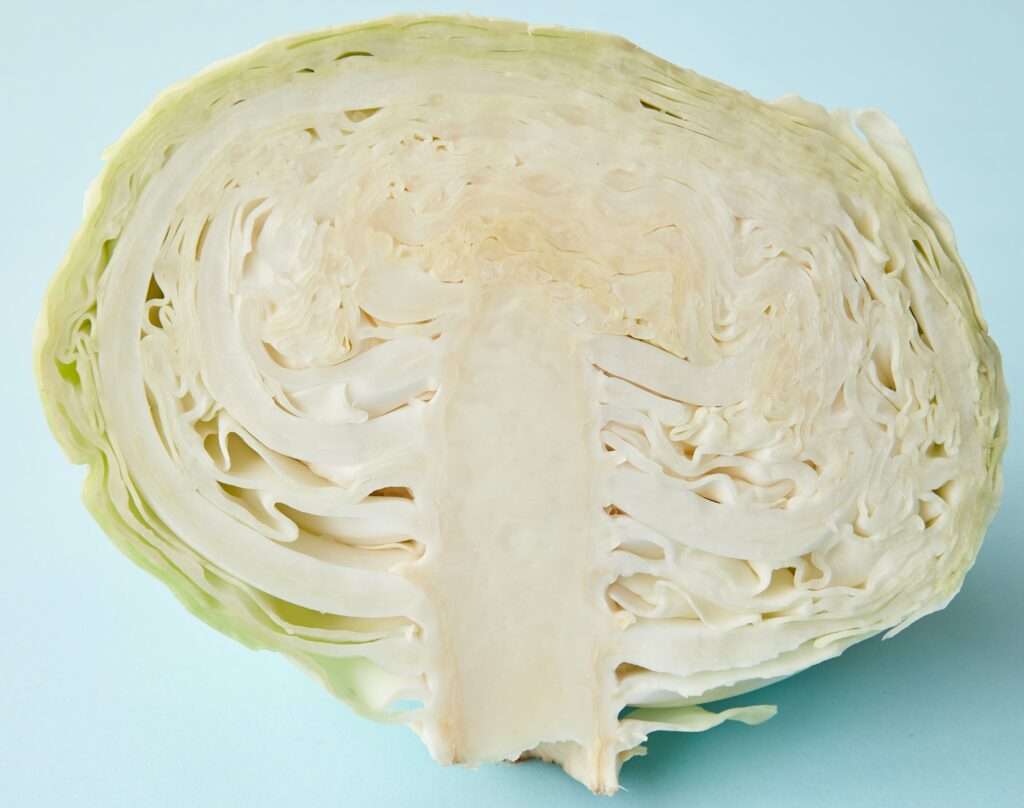
Cabbage is the best source of dietary fiber and it is a nutrition-rich vegetable. Additionally, low in calories and high in water, cabbage is a fantastic food choice for managing weight. Cabbage’s high fiber content helps people feel satisfied and can prevent overeating. The antioxidant content of cabbage is high, especially in vitamin C and other phytonutrients. These anti-oxidants assist in defending the body from oxidative stress and inflammation and have been linked to a lower risk of chronic illnesses like heart disease and some forms of cancer.
A good source of vitamins and minerals is cabbage. It offers potassium, manganese, folate, and the vitamins K, C, and B6. These nutrients promote overall health, bone health, and immunological function.
Fiber Foods Content
(100g) of cabbage gives you 2.5g of fiber.
The Healthy Evolution
23. Spinach

Spinach is a good source of dietary fiber and it is a nutrition-rich vegetable. Numerous health advantages can result from eating spinach. Because it increases satiety and maintains a healthy digestive system, spinach’s high fiber content helps with weight management. Beta-carotene, different phytonutrients, and vitamins C and E are among the antioxidants abundant in spinach. These nutrients help the body fight oxidative stress, reduce inflammation, and may help prevent chronic diseases including heart disease and some types of cancer.
A wealth of vitamins and minerals can be found in spinach. It is renowned for having a high vitamin K content since vitamin K is essential for healthy blood coagulation and bones. In addition to being a high source of iron and magnesium, spinach is also a good source of vitamins A, C, and folate.
Fiber Foods Content
(100g) of spinach gives you 2.2g of fiber
The Healthy Evolution
24. Whole Grain bread
Whole-grain bread is the most popular high-fiber foods. Whole grain bread contains both soluble and insoluble fiber and it contains many vitamins and minerals like folate, thiamine, magnesium, iron and vitamin B. Whole grain breads are having many health benefits like its good for digestion, reducing the risk of cancer and supporting the overall immune system. Add Whole grain bread to your diet because it has a good amount of fiber which makes your body very healthy and makes your diet very easy.
Fiber Foods Content
(100g) of whole grain bread gives you 7g of fiber
The Healthy Evolution
25. Brown Rice
Brown rice is very nutritious and has a high amount of fiber. Numerous health advantages can result from eating brown rice. For people with diabetes or those trying to control their blood sugar levels, the fiber component of brown rice can be helpful since it slows down the absorption of carbs. Additionally, brown rice’s helps you feel fuller for longer, which might help you manage your weight.
Additionally, a wonderful source of vitamins and minerals is brown rice. It contains a number of B vitamins, including thiamin, niacin, and vitamin B6, which are necessary for producing energy and supporting a healthy neural system. Minerals like magnesium and selenium, which are crucial for a number of body processes, are also present in brown rice.
Fiber Foods Content
(100g) of Brown Rice gives you 2g of fiber
The Healthy Evolution
The Bottom Line
Fiber foods are very healthy so adding fiber foods to your diet is essential for promoting good health. Keep in mind that there are various types of fiber, such as soluble and insoluble fiber, each with specific advantages. To reap the entire range of fiber advantages, it’s crucial to include a variety of fiber-rich foods in your diet. In order to preserve as much of the natural fiber content as possible, pick whole, minimally processed foods whenever you can when including these high-fiber items into your meals.
Read More

